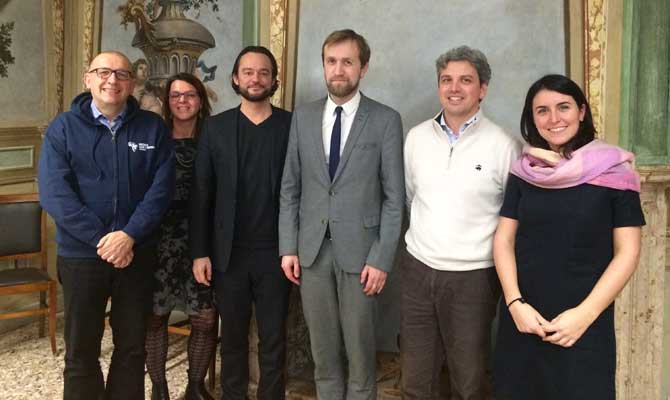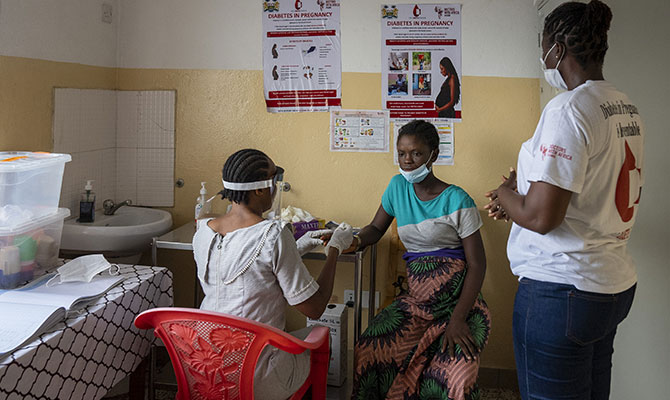On the 28th of January Bent Lautrup-Nielsen e Jakob Sloth Yigen Madsen, Programme Coordinators of World Diabetes Foundation (WDF) visited the headquarter of CUAMM in Padua (Italy) to discuss results of the partnership, started in 2014.
The core mission of WDF is to give funding and technical support to projects which can improve the prevention and treatment of diabetes and other noncommunicable diseases in countries where people are in most need or the resources are the most scarce. That’s why the foundation has its focus on Africa and, in particular, has become a CUAMM partner in Angola. Together we are implementing a pilot project to improve diabetes and hypertension detection and treatment among TB patients in Luanda province.
«Last December I had the privilege to go in Angola – Bent Lautrup-Nielsen said -. I had read reports from CUAMM office in Luanda and so I was expecting something very positive but when I came it was even better than I had hope! I was very impressed by the way CUAMM operates with the Ministry of Health in Angola and by the approach to health and development that CUAMM stands for».
Thanks to this project, in Luanda there are 72 health workers employed by the DOT centers (Directly Observed Treatment, Short-course) and trained to the screening of diabetes and blood pressure. In the last year, more than 4,200 tuberculosis patients were tested for diabetes and hypertension in six clinics of Luanda. These numbers are important considering that, as pointed out by dr. Lautrup-Nielsen:
«The main problem in Africa is that health systems have not recognize for years diabetes as a priority. Almost nothing was done to train medical staff to give information to the population. So now there is a big gap between epidemiological situation of countries and the capacity of health systems. That’s why so many people in Africa can not access to diabetes screening and care. Our effort aims at reversing that situation and bring resources to the countries so their health systems can at least improve prevention and care for diabetes».
Discover more about the project




